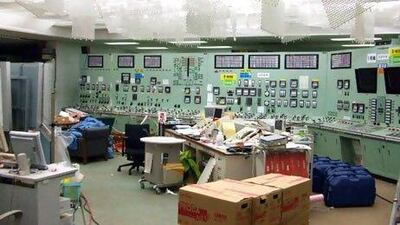Kuwait, Qatar and Saudi Arabia will press ahead with evaluations of nuclear energy production, despite recent events in Japan.
"We are reassessing the whole situation, but no, we are not stopping," said Suhaila Marafi, the director of the department of studies and research at Kuwait's ministry of electricity and water.
A committee that had been scheduled to meet two weeks ago to discuss a proposed nuclear programme has pushed back the date by at least a month in response to public concerns.
Elsewhere in the Gulf region, Saudi Arabia and Qatar are also considering meeting growing demand with nuclear energy. And this month the UAE broke ground on a US$20 billion (Dh73.45bn) nuclear energy plant.
Officials from Saudi Arabia, Qatar and Kuwait said they were proceeding with those evaluations or construction.
"The question is what will happen after the oil will disappear," said Abdulsattar al Rasheed, the executive managing director of Qatar Power. "Nuclear will be the most ideal for countries within the GCC."
Saudi Arabia has signed nuclear co-operation agreements with the US and France, creating a ministry-level centre for the development of nuclear and renewable power.
"It's at an early stage," said Saleh Alawaji, the Saudi Arabian deputy minister for electricity and chairman of Saudi Electricity said at a utilities conference in Abu Dhabi yesterday. "I think the option of using nuclear energy … is a must."
Kuwait is considering up to six nuclear reactors, with the first two planned to come online in 2021 or 2022. Despite the widespread misgivings, Kuwait is likely to proceed with those plans, Ms Marafi said.
The state-owned France International Nuclear Energy Agency and the US developer Lightbridge conducted a feasibility study of potential plant sites in southern Kuwait. Those results are to be evaluated by a committee that includes Kuwaiti oil producers, government officials and nuclear scientists.
Like other GCC countries, Kuwait produces most of its power by burning oil and natural gas. It is looking at cleaner energy sources to meet growing demand and re-routing valuable fossil fuels for export.
Jeremy Gordon, a nuclear analyst with the World Nuclear Association based in London, said Kuwait's move echoed those of nations with nuclear power that have made efforts to make the public comfortable with it.
"They're just thinking twice and just demonstrating and showing to the public that they're taking it seriously," Mr Gordon said. "What's happening in Kuwait is exactly the right thing, that's what the government ought to do."

